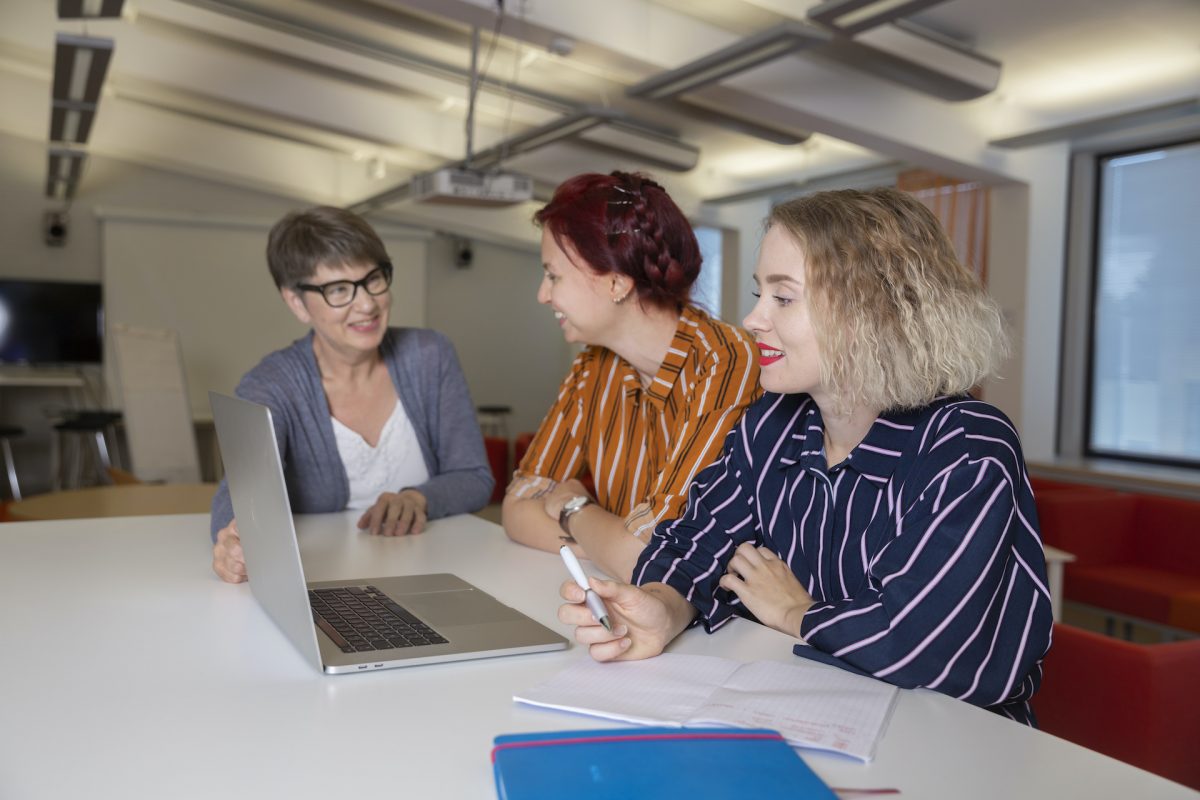Studying requires you to have self-discipline, time management skills and determination to take responsibility for your studies. Social interaction and co-operative learning are technology-based forms of communication used in learning. Besides studies, sufficient rest and leisure are important in maintaining one’s wellbeing and ability to study.
Studies consists of study units. The extent and workload of study units is described as credits. Completion of a study unit includes supervised learning with different methods as well as independent work, e.g. assignments, literature and reporting.
Credits
The degree programmes at Karelia University of Applied Sciences have gone through curriculum reforms and defined the core contents and learning objectives of the programmes and modules as well as the student workload at course level.
The European Credit Transfer and Accumulation System (ECTS) has been used as a national system to measure the student workload at all Finnish higher education institutions since 1 August 2005. The student workload required to complete each course or module is measured in ECTS credits. The average workload for one academic year is 60 ECTS credits (1600 hours), and one credit corresponds to 27 working hours.
One study week equals 1.5 credits, equivalent to 40 hours of student work (including teaching, self/group/team work).
Student’s workload per academic year is 1600 hours or 60 credits.
Assesment
Assessment is carried out at different stages of the study process in order to support the attainment of educational objectives and competences. The annual, module or course specific learning objectives are used as a basis when choosing different assessment principles and methods.
The assessment principles are presented during the first session of each course. Student’s performance is assessed by using the following marks: excellent (5), very good (4), good (3), satisfactory (1-2), fail (0) or the course is evaluated pass (H)/fail (0) only. The student’s marks are recorded in Peppi system through which the student can also monitor the progress of his/her studies. Students are responsible for updating their contact information at Peppi during their studies.
Different ways of learning
Contact studying takes place at an agreed location at an agreed time. Contact studying includes e.g. contact teaching days and lectures at UAS premises, excursions and trips made by a student group, or following real-time distance lectures.
E-learning (distance learning) is a method in which information and communication technology is employed. It allows flexibility in the timing of your studies and you can usually select the most appropriate study time and place. A prerequisite for e-learning is having a computer, broadband connection, headset and a web camera.
Karelia uses Moodle and Collaborate as e-learning environments. It is possible to deliver study materials, submit assignments to the teacher, take exams and discuss learning with your peers through these systems. Moodle also serves as a support for student counselling and recorded lectures can also be stored in Moodle.
Group work allows you to conduct project work and various project-related assignments. In addition, some individual study units may be implemented as group work.
Independent studying means that a student e.g. gets familiar with study materials and literature, completes learning assignments and conducts studies in an e-learning environment.
Blended learning requires you to have self-discipline, activity, time management skills and determination to take responsibility for your studies. Social interaction and co-operative learning are new kinds of technology-based forms of communication used in blended learning.
Exam is usually one part of all study units. However, some study units can be completed by taking a book exam only.
On-the-job training refers to different placements and project work that develop your expertise and give you an opportunity to establish contacts for your future career.
Projects
Exchange students have excellent opportunities to complete individual projects, practical training and/or a thesis at Karelia University of Applied Sciences. Those interested in these options should contact the departmental international coordinator of the particular study field and agree on the details well before arriving to Finland.Those who are already in Joensuu and wish to do practical training after a study period at Karelia University of Applied Sciences, should consult their home institution and the departmental international coordinator at Karelia UAS to explore the possibilities.

